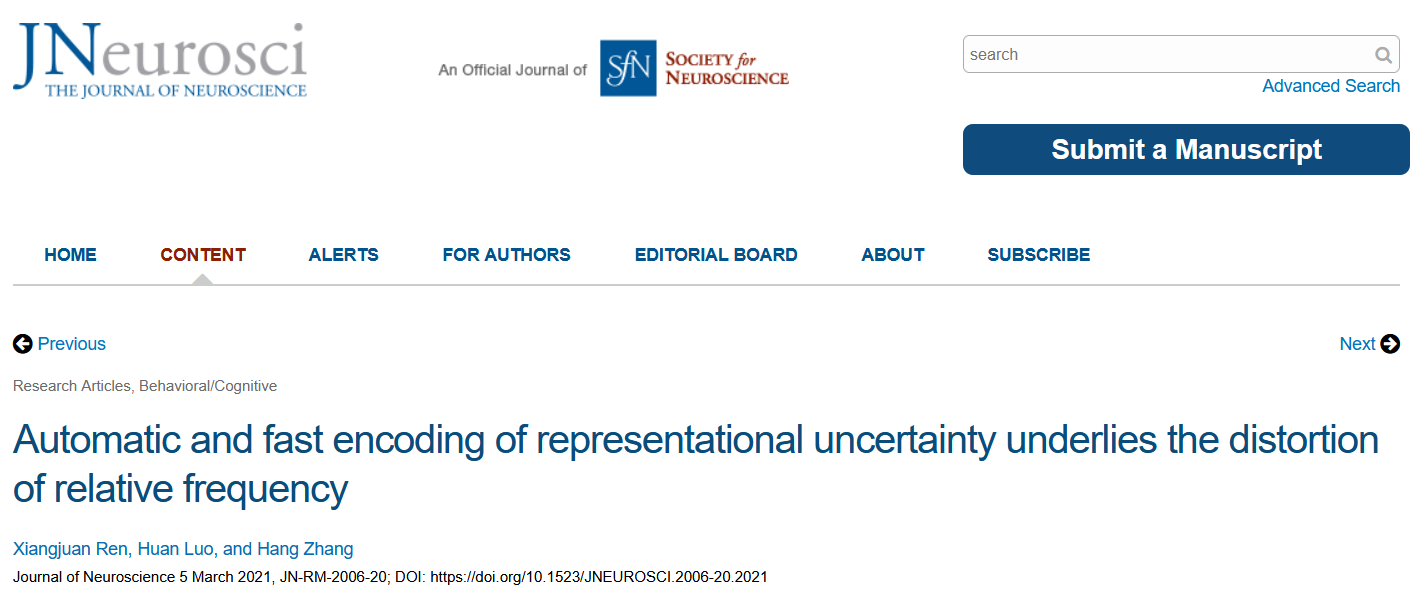Drs. Hang Zhang & Huan Luo's Lab: Automatic and fast encoding of representational uncertainty underlies the distortion of relative frequency

Abstract
Humans do not have an accurate representation of probability information in the environment but distort it in a surprisingly stereotyped way (“probability distortion”), as shown in a wide range of judgment and decision-making tasks. Many theories hypothesize that humans automatically compensate for the uncertainty inherent in probability information (“representational uncertainty”) and probability distortion is a consequence of uncertainty compensation. Here we examined whether and how the representational uncertainty of probability is quantified in the human brain and its relevance to probability distortion behavior. Human subjects (13 female and 9 male) kept tracking the relative frequency of one color of dot in a sequence of dot arrays while their brain activity was recorded by magnetoencephalography (MEG). We found converging evidence from both neural entrainment and time-resolved decoding analysis that a mathematically-derived measure of representational uncertainty is automatically computed in the brain, despite it is not explicitly required by the task. In particular, the encodings of relative frequency and its representational uncertainty respectively occur at latencies of approximately 300 ms and 400 ms. The relative strength of the brain responses to these two quantities correlates with the probability distortion behavior. The automatic and fast encoding of the representational uncertainty provides neural basis for the uncertainty compensation hypothesis of probability distortion. More generally, since representational uncertainty is closely related to confidence estimation, our findings exemplify how confidence might emerge prior to perceptual judgment.
Original Link: https://www.jneurosci.org/content/early/2021/03/05/JNEUROSCI.2006-20.2021